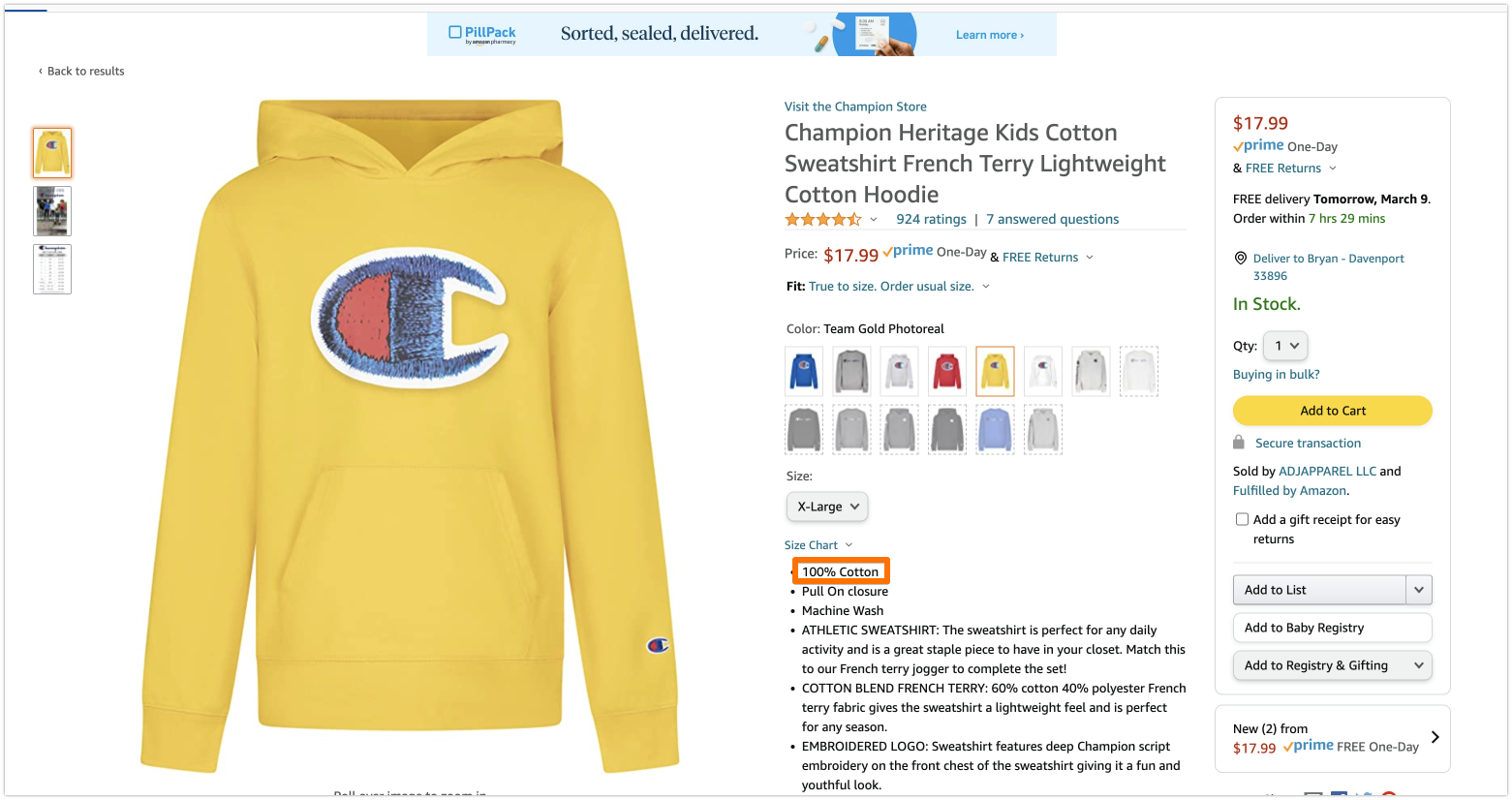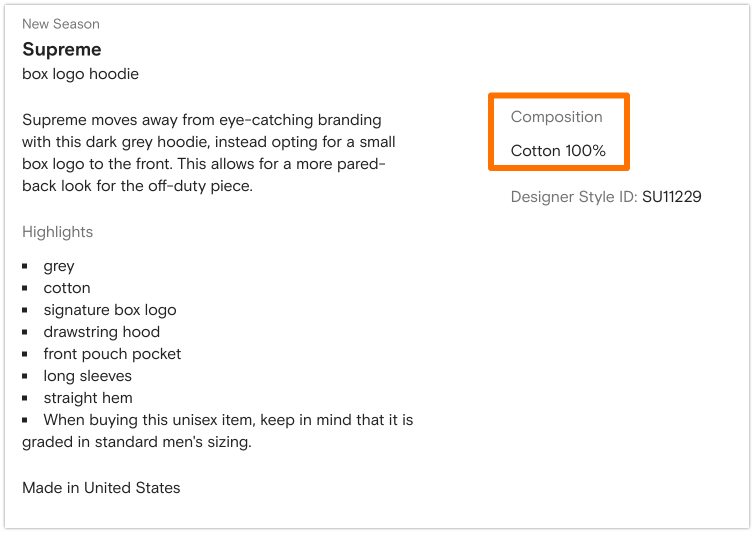
Have you ever stopped to think about why you make the buying decisions you do, or more importantly, what drives consumers to buy from you?
What makes someone choose Coke over Pepsi or McDonald’s over Burger King? Is it the nostalgic memory of sharing a can of Coke with their beloved grandparent or that feeling of excitement they’d experience when donning the Burger King paper crown as they unwrapped their hamburger?
Maybe the convenience store they frequent has Pepsi signs all over the place, and it’s right next to the McDonald’s with the giant twin arches that they walk by every day on their way to school.
The point is, branding is powerful.
And, as a small business owner, you need to know how to brand your business so you can attract, engage, and convert more customers.
What is a brand?
To put it plainly — a brand is the telling of a business owner’s unique story. The key to the story is to present an authentic and unique “identity” with which people WANT to do business. Your brand’s story is supported by your brand’s strategy, which in turn is made up of elements or campaigns such as logos, taglines, websites, email newsletters, social media, and more.
In the modern world, nearly everything is branded. Even the “generic” groceries you buy at your local market have a brand.
According to the American Marketing Association, a brand is defined as:
“A name, term, design, symbol, or any other feature that identifies one seller’s good or service as distinct from those of other sellers. The legal term for brand is trademark. A brand may identify one item, a family of items, or all items of that seller. If used for the firm as a whole, the preferred term is trade name.”
“The art of aligning what you want people to think about your company with what people actually do think about your company. And vice-versa.”
Another way to think of brand is like a “calling card” that someone uses in order to establish themselves within their marketplace. In this regard, it is the exclusive factor that separates one product or service from another offering within a similar space. For example, when looking for a new sweatshirt, I could buy from Champion, Russell Athletic, Nike, Under Armour, or a hundred other brands.
All of these brands offer me the same basic functionality: a garment of clothing made of cotton and/or polyester that can cover me when I need an extra layer of warmth. But what amazes me — and what should blow your mind as well — is how a Champion sweatshirt (presumably made with the same cotton materials in a similar factory) can cost me $18 while a Supreme hoodie can easily exceed $200.


In a closer-to-home example, let’s look at Dakota Riley, a realtor at the head of the Depend on Dakota Team with Keller Williams Realty.
What makes brands so powerful?
A brand’s power is in its ability to stand out from the competition and imprint a lasting impression in the minds of consumers. Let’s think for a moment about the brand name because a memorable brand name is mission-critical in marketing. Well-thought brand names bundle two elements together:
- Denotation is the strict dictionary definition of a word or phrase
- Connotation is the emotional and imaginative association a consumer has when seeing the word or phrase
Together, denotation and connotation provide consumers with a base for neuro-association — or the links that are created between what a consumer experiences and the emotions and thoughts connected with that experience. Knowing this, let’s take a deeper look at the Supreme sweatshirt example through the lens of denotation and connotation.
Denotatively, supreme is an adjective meaning “superior to all others.”
Connotatively, supreme makes one feel as if they have “made it.” They are at the top of their game or sitting at the highest level of their social circle or community and feeling excellent. Think of the words “Supreme Ruler,” and you’ll get an idea of the feelings it elicits.
When someone dons a Supreme sweatshirt, how do you think it makes them feel? Do they feel like a scrub, or do they feel like they can take the bull by the horns and rise above the muckety muck to win the day and set an example of success for those around them? If you said the latter, you’re on your way to understanding what a brand is.
Branding Case Study: Depend on Dakota
Can you imagine making $1 million in sales?
How about $5 Million?
When Dakota Riley began her career as a realtor in 2008, these sales goals seemed unattainable.
The housing market had taken a major hit, subprime loans turned out to be made of Monopoly money, and the idea of finding pre-approved home buyers was likened to spotting Bigfoot or swimming with the Loch Ness Monster.
Needless to say, the professional outlook was bleak at best for Dakota, and her monthly commission checks reflected it.
Being a determined, dedicated, and driven individual, Dakota refused to let the recession affect her business or bank account.
She knew that word-of-mouth marketing was key to her success in real estate, and she was sure to introduce herself and her services to anyone and everyone she met.
As a consummate salesperson, Dakota soon saw an increase in business (both interested home buyers and sellers wanting to list their houses with her.)
Over the next few years, she would broker enough sales to make a pretty good living, but “pretty good” wasn’t good enough for Dakota. She knew she could do more!
It’s as though the stars aligned at that point in time. Right as Dakota was realizing that she needed to catalyze her growth in the real estate game, we had a fateful meeting in our condo complex.
While we barbecued with family and friends, Dakota and I discussed her business goals, her obstacles, and what she was doing to overcome them. We pulled out our phones and explored her online marketing strategy, identifying substantial opportunities for improvement.
After a great afternoon of burgers and brainstorming, we decided to work together to develop a brand for Dakota because we both saw what she could accomplish with a bit of marketing strategy.
Building A New Brand
Building a brand isn’t as easy as choosing a sophisticated word like “Supreme” and printing it on merchandise. There’s quite a bit that goes into naming your business and establishing your brand.
At our digital marketing agency, before we take on a branding project, we first take a 365-degree, 30,000-foot view of our client’s business. We need to see the business from every possible aspect:
- What products or services does the business offer?
- What is the value proposition of the products/services?
- What are the cost basis and price points for the products or services?
- Where is the business located?
- Who is the business targeting: other businesses, end-user consumers, both?
- What other competitors exist in the area? How saturated is the local market?
Let’s briefly break down Dakota’s business at the time:
- Services: Dakota sold homes on behalf of her clients and helped buyers find homes on the South Shore of Massachusetts.
- Value: Dakota sold properties valued over $200,000 and shows homes to buyers valued between $250,000 and $1,000,000
- Location: Dakota focused on the Greater Boston real estate market with a strong foothold in South Shore communities including Braintree, Weymouth, and Quincy, MA
- Target Market: Dakota primarily targeted first-time home buyers, current homeowners, and those relocating to the Greater Boston area
- Her secondary target market focused on referral sources such as mortgage brokers, insurance agents, closing attorneys, and divorce attorneys
- Competition: Dakota was up against fierce competition in Greater Boston. The area was saturated with thousands of qualified, licensed realtors.
- Reputation: Dakota was known for her tenacity and top-notch customer support, but she was also referred to as the “girl with a state for her name.”
These were the key details in developing Dakota’s real estate email marketing plan. From this exercise, we determined that Dakota had to earn the trust of her prospects and clients. After all, she was making huge deals with their small fortunes. Moreover, she had to stand out from the throngs of competing realtors in the Greater Boston area.
Our work was definitely cut out for us…
Top 3 Tips for Naming Your Brand
If you’re just starting out on your business journey, or you’re exploring a rebrand, here are some tips we offer to our Bigger Better Biz Marketing Community members.
1) Think about what your brand should convey
Remembering connotation and denotation above, do you want your brand name related to innovation, creativity, credibility, or top customer service?
What is a brand name that would work in your specific industry?
For instance, if you are launching an insurance agency, you wouldn’t want to use a quirky, creative name like “Insurance 4 U” because as creative as it is, it doesn’t necessarily convey professionalism and credibility to an insurance customer.
2) Brainstorm brand names
Think of some of the largest brands today — Apple, Sprint, Tesla, and Infinity — and you’ll most likely conjure a visual association. Usually, that’s the result of marketing and advertising teams spitballing thousands of ideas, but for small business owners, sometimes gut instinct and luck come into play.
Consider Richard Branson’s explanation of how he came up with one of the most recognizable names in the business world, Virgin:
“There was no great plan or strategy. The name itself was thought up on the hoof. One night some friends and I were chatting over a few drinks and decided to call our group Virgin, as we were all new to business. The name stuck and had a certain ring to it.”
If you’ve ever watched shows like The Apprentice UK, you may have seen a similar brainstorming session where the teams came up with a name to impress the boss. Some of the names made quite an impression while others fizzled upon arrival. Here are a few of the top-rated team names and their denotations:
- Team Ignite: to cause something to start burning
- Team Vitality: energy and strength
- Team Velocity: the speed at which an object travels
- Team Phoenix: a mythical bird able to regenerate through flames
- Team Alpha: the first letter in the Greek alphabet
And here are some not-so-good team names used on the show:
- Team Connexus: a union of elements or things
- Team Eclipse: when something becomes less important or is hidden
- Team Venture: an activity that involves an element of risk
When you read the above lists, you see the literal definitions (denotations) but what does each of those names elicit inside of you (connotation)? Are they easy to remember like Team Ignite or easy to flub up like Team Connexus?
If you’re just starting to define your brand, then open a Google Doc, create a bullet list, and write down all the words that come to mind when you think of your products, services, industry, and customer experience. Look up their definitions and ask your trusted advisors for the feelings elicited when they hear those words — to start narrowing things down.
3) Try the “Water Cooler” test
Imagine your customers at work, gathered around the water cooler (or break room) and sharing stories to help pass the time.
Let’s say they start talking about your business and how your products and services helped them solve a pain point.
If your brand name is easy to remember, then they may just provide some brand advocacy for you. However, if you choose a brand name that is difficult to recall, they may just say, “Some company helped me with…”
That’s a missed opportunity and totally taboo in the world of marketing, so choose something memorable.
The birth of the “Depend On Dakota” brand
For weeks, Dakota and I toyed with ideas for a new brand name that would set her apart from the competition and move away from the “girl with a state for a name” reference. We researched tirelessly, looking at how other realtors and real estate teams were named, and even dove into how we could use alliteration to help people remember the brand.
We decided that what Dakota needed most was to build trust with her clients because there were so many run-of-the-mill realtors who had provided substandard experiences for their clients.
Her audience had to believe they could rely on her with one of the largest investments of their lives. They needed to understand that she was on the straight and narrow and would only show them the best homes in the area or get them top dollar for their listings.
They had to realize that they could Depend on Dakota!
We’d finally determined the brand name. Dakota’s story was in the brand name, and the brand name was Dakota’s story:
“Need a realtor? Depend on Dakota for an experienced, well-connected resource in the community!”
“Selling your home in Quincy? Depend on Dakota to get you top dollar!”
“Looking for an area expert? Depend on Dakota to show you the ins and outs of the South Shore!”
So how did we build a multi-million dollar brand?
These three little words changed the trajectory of Dakota’s career forever. No longer was she friendly and forgettable Dakota Riley; she was now a name to be remembered and a force to be reckoned with. In our next article, we’ll explore how we helped Dakota go from barely scraping by to a household name on the South Shore of Massachusetts.
Did you know? Constant Contact offers a corporate account option designed for real estate brokers/owners, so you can provide agents with all the digital marketing tools they need, in one place. Benefits of a corporate account include a discounted rate for your agents, locked branded templates to keep brand consistency across all users, tools to track results (opens, clicks, etc), and more. For more information, fill out this quick form, and we’ll reach out with more information on how you can make your marketing easier and more consistent throughout your brokerage.




